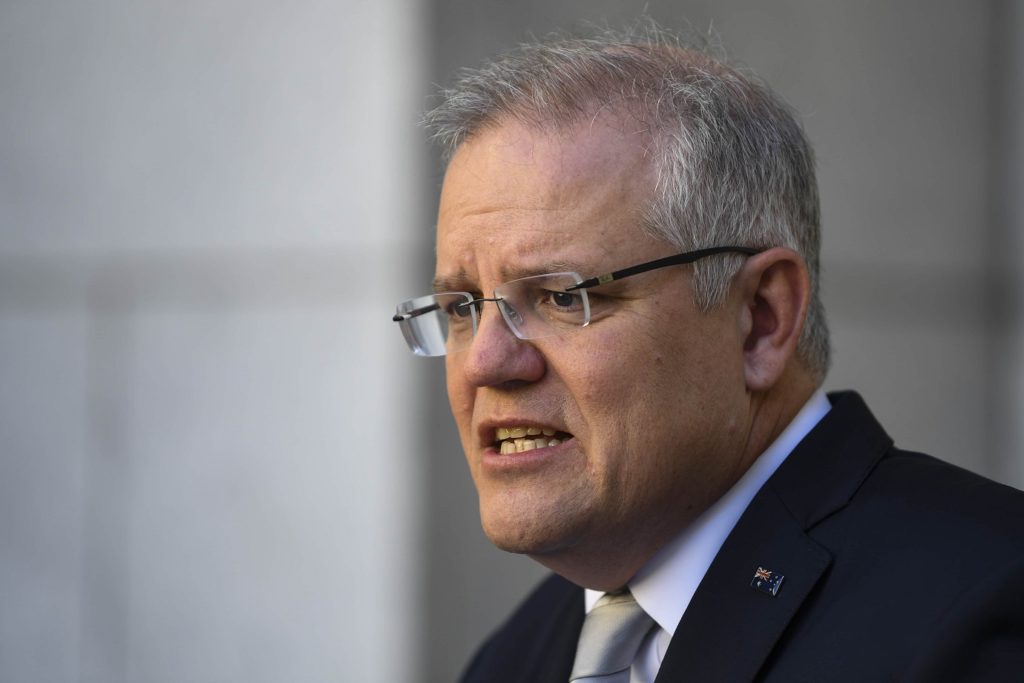As Prime Minister Scott Morrison prepares to attend this year’s G7 in Cornwall on 11-13 June, there’s no question that this is an invaluable opportunity for Australia to stand on the world stage in the collective commitment to ‘build back better’ from the pandemic.
Attending the G7 is a rare opportunity – we’ve only been invited a handful of times since 1975 – for Australia to contribute to discussions with some of the world’s most advanced economies on issues such as COVID-19, economic recovery, climate change, vaccines, and debt.
As Prime Minister Boris Johnson put it, the UK will use its G7 presidency to “unite leading democracies to help the world fight, and then build back better from the coronavirus and create a greener, more prosperous future”.
But here’s the thing: a prosperous future for any region, anywhere, has to include equality. Specifically, gender equality.
The pandemic has laid bare the many fault lines in global systems, including the fact – now more visible than ever – that the unpaid care, domestic and household work performed by women props up the global economy. For Australia, indeed for any country, to commit to a better future after the pandemic, gender equality will have to be at the heart.
Gender inequality not only affects the lives of individuals, but has also been shown to impede economic growth and global development. It’s not enough for us to snap back to the way things were. The pandemic has provided a unique opportunity to build a more just and equal world and addressing gender inequality must be at the heart of these efforts.
As CEO of the International Women’s Development Agency (IWDA) I participated in the W7 Summit in April, the parallel process where global gender equality and women’s rights advocates come together to make recommendations to G7 leaders. The W7 Summit recommended that gender equality be central to the G7 agenda and mainstreamed effectively across all priority areas from climate change to recovery from COVID-19. The G7’s 2021 focus is building back better from the pandemic, but to do this, we will have to look at one of the major fallouts: the reversal of progress on gender equality.
The UK’s commitment to gender equality, with a focus on girls’ education as part of its G7 presidency this year, is a welcome first step. A commitment from all participating governments to incorporating gender-responsive budgeting and policymaking across all priorities would help address gender equality in the longer-term and more broadly help recover some losses brought on by COVID-19.
Australia can – and should – use this opportunity to help lead the way to greater gender mainstreaming across the G7 priorities. After all, Australia pioneered gender-responsive budgeting in the 1980s.
Though we have taken an inconsistent approach to applying a gender lens to our federal budget over the years, this year’s budget delivered positive steps towards more inclusive budgeting through the reintroduction of the Women’s Budget Statement, additional spending on childcare, women’s safety and investment in women’s economic security. The budget also committed funding through Australia’s international development program to gender equality efforts in the Asia and Pacific regions.
But there’s a long way to go.
Australia ranks just 22nd out of 28 OECD countries in terms of the percentage of our total aid budget dedicated to gender equality, behind Canada, Japan, New Zealand, among others. Canada, which leads the charts, manages to gender mainstream over 90 per cent of its aid budget through its feminist international assistance policy, currently being expanded as a full feminist foreign policy. This is a target Australia should aspire to meet in its own international development efforts.
There is a clear solution, one which has already been embraced by G7 leaders like Canada and France. Adopting a feminist foreign policy would place Australia at the forefront of efforts to achieve gender equality globally. Empowering girls and women, and investing in programs that promote gender equality, is a sure-fire way to a more peaceful and flourishing Pacific region.
Foreign Minister and Minister for Women Marise Payne could use a feminist foreign policy to better align domestic and foreign policies to amplify and promote gender equality at home and abroad.
In addition to the G7, the UN Women convened Generation Equality Forum in Paris later in June is another critical opportunity for Australia to stand up for gender equality. June is an exciting month full of potential for our country to speak out on global stages in support of gender equality, commit further resources to this goal, and ensure that Australia and the world builds back from COVID-19 towards a more equal future.
We must seize these opportunities to lead.
Bettina Baldeschi is the chief executive of the International Women’s Development Agency.


